Four top questions answered about the COVID-19 vaccine for workplaces in Australia
By Dean Mohr

What does the COVID-19 vaccine mean for your business?
COVID-19 vaccinations have arrived in Australia and are being rolled out to the population in five phases. Many business owners are breathing a sigh of relief, after a year of disruption and uncertainty. But with the vaccine’s arrival come questions on what this means for your business.
Can you make the COVID-19 vaccination mandatory at work?
Getting the vaccine is voluntary for Australians. The good news is that 74% of employed Australians are keen to get the vaccine, reports Melbourne Institute. This percentage may rise if the vaccine roll out goes as smoothly as it has done elsewhere – 213 million doses had already been administered across 95 countries by February 2021. The Department of Health’s education program may also allay concerns.
Businesses must to do a Safe Work Australia risk assessment to test if there’s a risk to health if some staff are not vaccinated. If it’s not possible to social distance in your workplace, for example, it might be more important.
Most employers can’t force employees to get vaccinated, says The Fair Work Ombudsman.
Some people may have legitimate health reasons for avoiding the COVID-19 vaccine, such as being pregnant or breastfeeding, immunocompromised, under 18, or having a rare history of extreme allergic reactions to vaccine ingredients, reports the ABC.
For most businesses, if some of your employers aren’t vaccinated, it may be important to treat them the same as other workers, for example with shifts, or you could be accused of discrimination.
If you are considering making the COVID-19 mandatory at work because you’re in a particularly sensitive industry, such as health, food production, border control and hospitality, you should seek legal advice and speak to the Fair Work Ombudsman before rolling out your plans.
State and territory health agencies may later require high-risk workers to be vaccinated, but it’s not certain at this stage. NSW is looking at this possibility of making the vaccine mandatory, for example, for government buildings and aged care facilities, and potentially even private businesses.
Brian Borowsky, head of My Occ Health Record, believes that some businesses will be able to make it mandatory in future.
“I think that lots of industries will be able to require it, such as meat packing and aged care. In many of these kinds of industries, currently for a worker to get on site they need proof of certain vaccinations. Businesses that already operate in that environment will find it easy to require their employees to get a COVID-19 vaccination.”
Right now, it appears that businesses can’t make vaccination a condition of entry for visitors, either. But it’s currently a requirement to have measles and flu vaccines to visit aged care facilities, so it would not be without precedent.
How do I encourage staff to get the COVID-19 vaccine?
Communication is critical, so you can encourage workers to get the COVID-19 vaccine by providing government information on the vaccines’ safety and efficacy. You can also remind them that vaccination doesn’t just protect them, it could help protect everyone they come in contact with. It can also stop more deadly variants of the virus developing, reports the Melbourne Institute.
“Employers should talk about business continuity and business resilience as opposed to ‘you have to do this’. They could use messaging like: ‘We’ve been in a tough spot this past year, and we’ve been working through COVID all this time. We’re proud and thankful for your effort. Our next phase to keep you safe, to keep your job safe, to keep your co-workers safe, is to get vaccinations’,” says Borowsky.
“As with most things, it’s important to lead with the ‘Why’ – why are we asking this? – and make it a human endeavour not a corporate thing.”
How do I track the COVID-19 vaccine in my staff?
Australians will be able to prove they’ve had the COVID-19 vaccination through the Express Plus Medicare app. The information will also be on the Australian Immunisation Register. However, making it mandatory to prove vaccination could raise some privacy concerns.
For a whole-of-business approach, employers will be able to track their staff’s vaccination status through the Daily Health Check app.
“We’re building a number of ways to do it,” says Borowsky. “We think it’s important for business to be able to go in and see who’s had it and who hasn’t had it. That may help them make key decisions, like health and safety planning.
“If there’s also a requirement that staff prove their vaccination status for that business, perhaps as a condition of entry to the workplace, we will enable that through our MOHR app.”
Will we be able to relax our health and safety measures?
Even if all of your staff have the COVID-19 vaccine, it’s important to keep the health and safety measures you’ve introduced since 2020. Because even if vaccinated, individuals may be able to carry the virus and infect others. And you can’t guarantee that all visitors and contractors in your workplace are vaccinated.
These measures include physical distancing, good hygiene, regular cleaning and ensuring your workers don’t attend work if unwell, says Safe Work Australia.
MOHR plays an important role in tracking employee health with their Daily Health Check app. With the app, employees answer a customisable questionnaire to keep their managers up to date with their physical and mental health. If they are unwell, their manager is immediately notified.
“It may be an uncomfortable realisation but once you’ve had the vaccine you can’t just frolic about; you still have to do the things that regulations require until COVID-19 is eradicated to a sustainable degree and everyone can be safe,” says Borowsky.
In the meantime, we may be more mindful of our health more than ever.
“With many of the organisations we work with, people are much more aware of their health. Maybe COVID will scare us in to taking better care of ourselves as individuals and as co-workers – not going in to work if there’s a risk of bringing in a disease, for example. And maybe just taking better care of their own health day to day.”
And that will be good for us all.
To learn more about how My Occ Health Record can help your organisation – from vaccination tracking to daily health checks – contact us today.

